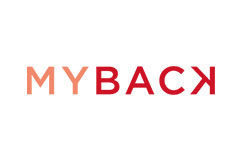Myback Project
What is the Myback Project?
The MyBack Project aims to compare the effectiveness of a personalized self-management program to prevent recurrences together with usual care, relative to usual care alone, in the secondary prevention of LBP. At the same time, it intends to assess the acceptability, feasibility and results of an implementation strategy designed to facilitate its adoption among individuals and health professionals.
What does the Myback Project consist of?
The Myback is a personalized program, adjusted to the biopsychosocial characteristics and physical capacity of the individuals. It aims to promote the self-management of LBP in individuals at risk of recurrent episodes of LBP, in order to enable them to manage their long term symptoms, prevent functional and occupational disability, and reduce the need of healthcare services.
What type of study will be implemented?
A type I hybrid of effectiveness and implementation, randomized, controlled and multicentre study will be carried out.
Hybrid design studies assess, simultaneously, the impact of interventions in real contexts (effectiveness) and the implementation strategy. They increase the ability to identify important intervention-implementation interactions that inform decisions about optimal implementation and overall impact. They can also accelerate the introduction of high-value innovations informed by the most current scientific evidence in real-life clinical settings. In the spectrum of hybrid effectiveness and implementation studies, designs differ according to the emphasis placed on testing the intervention (effectiveness) or implementation. This project uses a hybrid type I study, which focuses on the study of the effectiveness of “MyBack” in the context of primary healthcare.
What are the goals of Project Myback?
In the effectiveness component, we intend to determine whether the program reduces the frequency and severity of recurrences, the impact on function, musculoskeletal health and quality of life, and to investigate its cost-effectiveness from the perspective of the health system, in relation to usual care. The acceptability, feasibility and results of the implementation strategy designed to facilitate the adoption, implementation and future sustainability of the program will be assessed through mixed methods.
Goal: To compare the effectiveness of a personalized self-management program for LBP recurrence and usual care compared to usual care alone.
Additional goal: To test the acceptability, feasibility and results of an implementation strategy designed to facilitate adoption among individuals and health professionals.
Population: Individuals who have recovered from an episode of LBP






